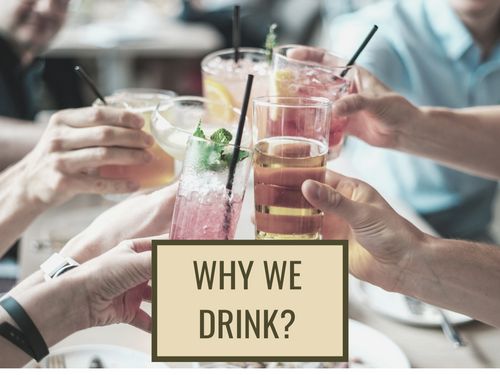The real reason we take drugs according to Tolstoy
Sep 09, 2021 · 2 mins read
0
Share

Russian novelist Leo Tolstoy makes a case against drug use in Why Do Men Stupefy Themselves? He argues people consume substances and alter their consciousness not for pleasure, but a different reason. Find out more👇👇👇
Save
Share
Not for pleasure. Tolstoy writes the actual reason for consuming drugs “lies not in the taste, nor in any pleasure, recreation, or mirth they afford.” People simply consume drugs to escape the punishing judgement of their conscience.
Save
Share
Two beings. Tolstoy writes there are two beings inside you: “one is blind and physical, the other sees and is spiritual.” The “blind animal being” acts but can’t judge. It moves like a “wound-up machine,” while the spiritual being approves or disapproves of its activities
Save
Share
A compass. The spiritual being communicates displeasure when the animal being errs, and humans experience it as the voice of their conscience. Tolstoy compares the conscience to a compass pointing at the true north. The ship, or the animal being, must readjust when off track.
Save
Share
Stifle the conscience. The conscience places demands on the animal being, and its displeasure is hard to brush off. To escape the “demands of one's conscience,” people consume substances. Instead of readjusting the sail, they break the compass.
Save
Share
Only two activities. Tolstoy writes “human life consists solely of these two activities:” aligning our actions with our conscience, or impairing the conscience to continue sailing in the wrong direction without guilt. People consume substances when they choose to do the latter.
Save
Share
Smoking as creative juice? Tolstoy gives the devil his due: “It is usually said (and I used to say) that smoking facilitates mental work.” But smoking only increases the quantity of mental output as it shuts off the inner judgement. What is gained in quantity is lost in quality.
Save
Share
Drugs and crime. Before killing other men in battle, men often drink - Tolstoy cites the example of French soldiers who were famously drunk in the Sevastopol assaults. Today, more than 50% of murderers are drunk at the time of the crime.
Save
Share
The primacy of consciousness. Tolstoy writes the crucial levers in a man’s life are pushed not by “his hands, his feet, or his back, but by his consciousness.” Tiny movements in the consciousness set the stage for future successes or failures.
Save
Share
Bottom line. Tolstoy presents a compelling case for keeping the inner moral compass - one’s conscience - clean and functional. Drowning the conscience is a temporary solution that worsens the problem in the long-term. And life, Tolstoy suggests, is lived in the long-term.
Save
Share
0